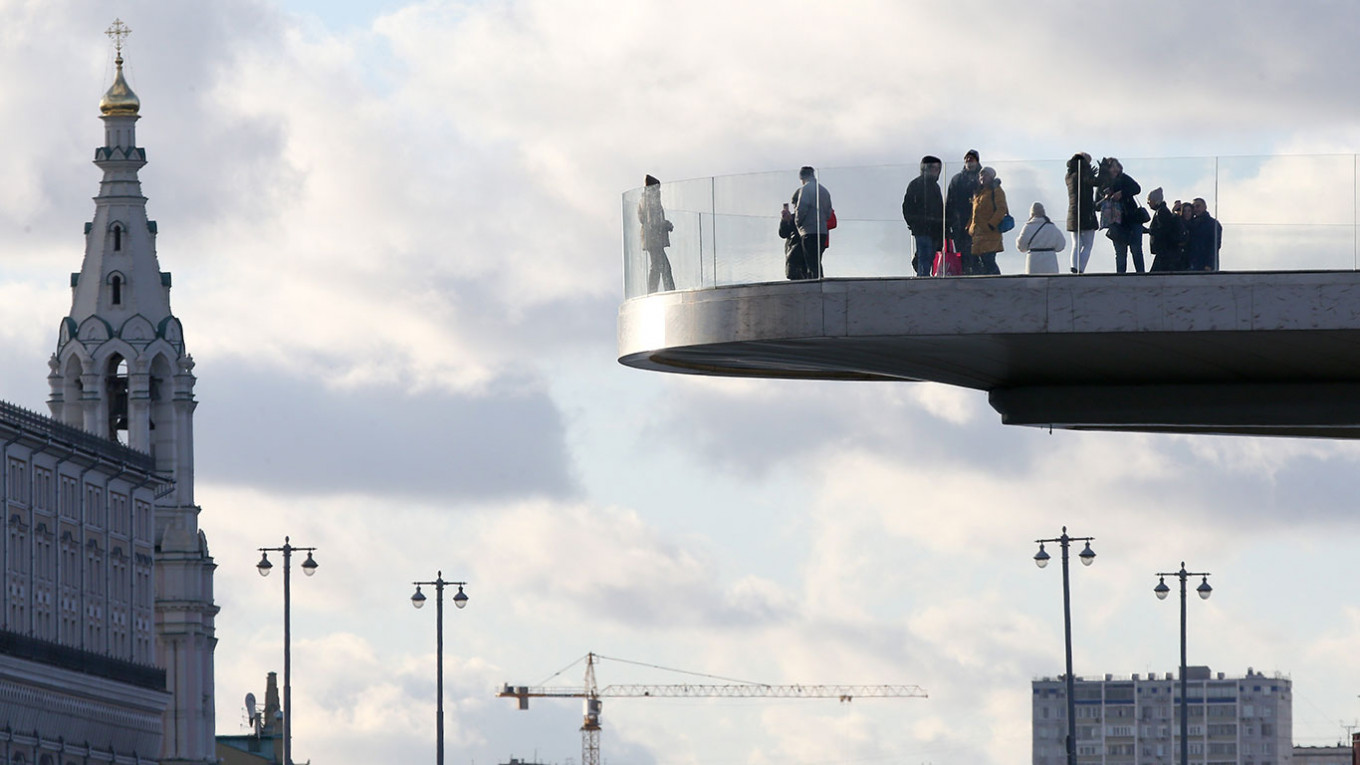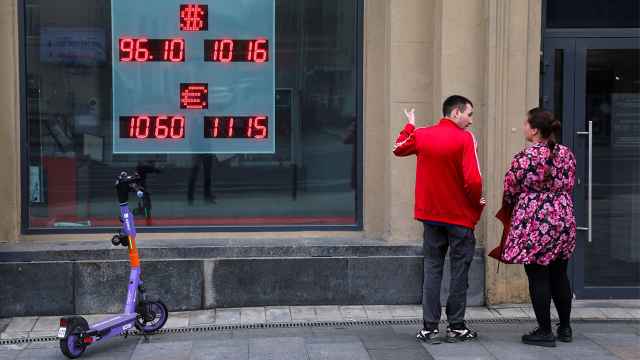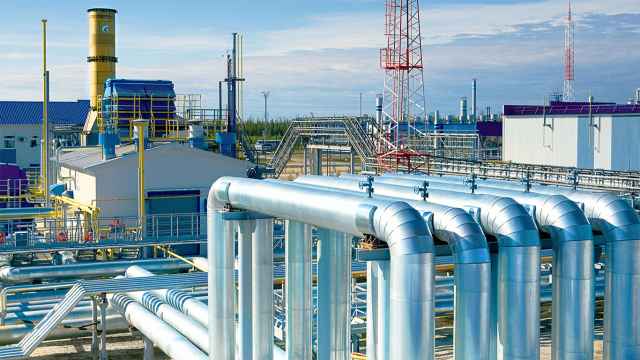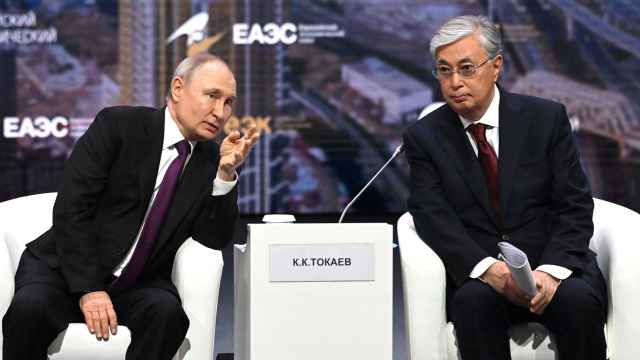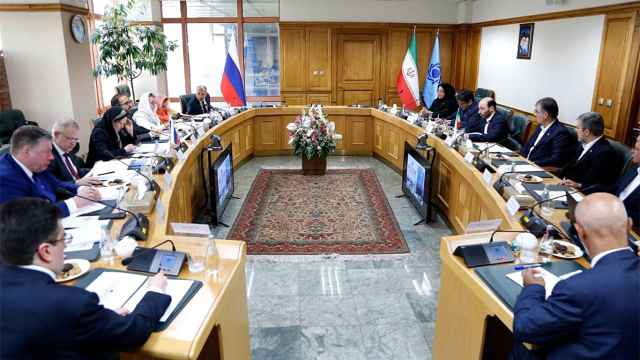Living standards in Russia climbed by their fastest rate in almost a decade in 2021, the country’s Rosstat statistics agency reported Wednesday.
Real disposable incomes — a closely watched indicator of household finances — rose by 3.1% during the year in the largest increase since 2013, the agency said. The trend comes after years of declining or stagnant incomes under President Vladimir Putin’s conservative economic policies prioritizing stability and protecting the Russian economy from Western sanctions, often at the expense of faster growth.
Economists pointed to Putin’s decision to award significant cash handouts to pensioners ahead of last year’s parliamentary elections as being behind the revival. Putin’s opponents criticized the move at the time as an attempt to whip up support for the unpopular ruling United Russia party ahead of the vote.
In the third quarter of last year — when the 10,000-ruble handouts were awarded — real disposable incomes jumped 8.8%, Rosstat said, before falling back to growth of 0.5% in the final three months of the year.
Fast growth in consumer loans and credit cards have also helped restore Russia’s consumer economy following the pandemic slowdown in 2020, but have raised some cause for concern, including within the Central Bank.
The jump in incomes recorded last year took living standards back to pre-coronavirus levels, although Russians are still more than 5% poorer today than they were in 2013, the year before Moscow annexed Crimea.
Most Russians say they do not feel financially comfortable and independent polls show a majority expect the country’s economy to deteriorate, not improve, over the coming year.
High inflation, which rose to 8.7% in figures released Wednesday, also threatens to undermine Russia’s recovery from the coronavirus recession, with fast-rising prices regularly cited as households’ top political concern.
A Message from The Moscow Times:
Dear readers,
We are facing unprecedented challenges. Russia's Prosecutor General's Office has designated The Moscow Times as an "undesirable" organization, criminalizing our work and putting our staff at risk of prosecution. This follows our earlier unjust labeling as a "foreign agent."
These actions are direct attempts to silence independent journalism in Russia. The authorities claim our work "discredits the decisions of the Russian leadership." We see things differently: we strive to provide accurate, unbiased reporting on Russia.
We, the journalists of The Moscow Times, refuse to be silenced. But to continue our work, we need your help.
Your support, no matter how small, makes a world of difference. If you can, please support us monthly starting from just $2. It's quick to set up, and every contribution makes a significant impact.
By supporting The Moscow Times, you're defending open, independent journalism in the face of repression. Thank you for standing with us.
Remind me later.


